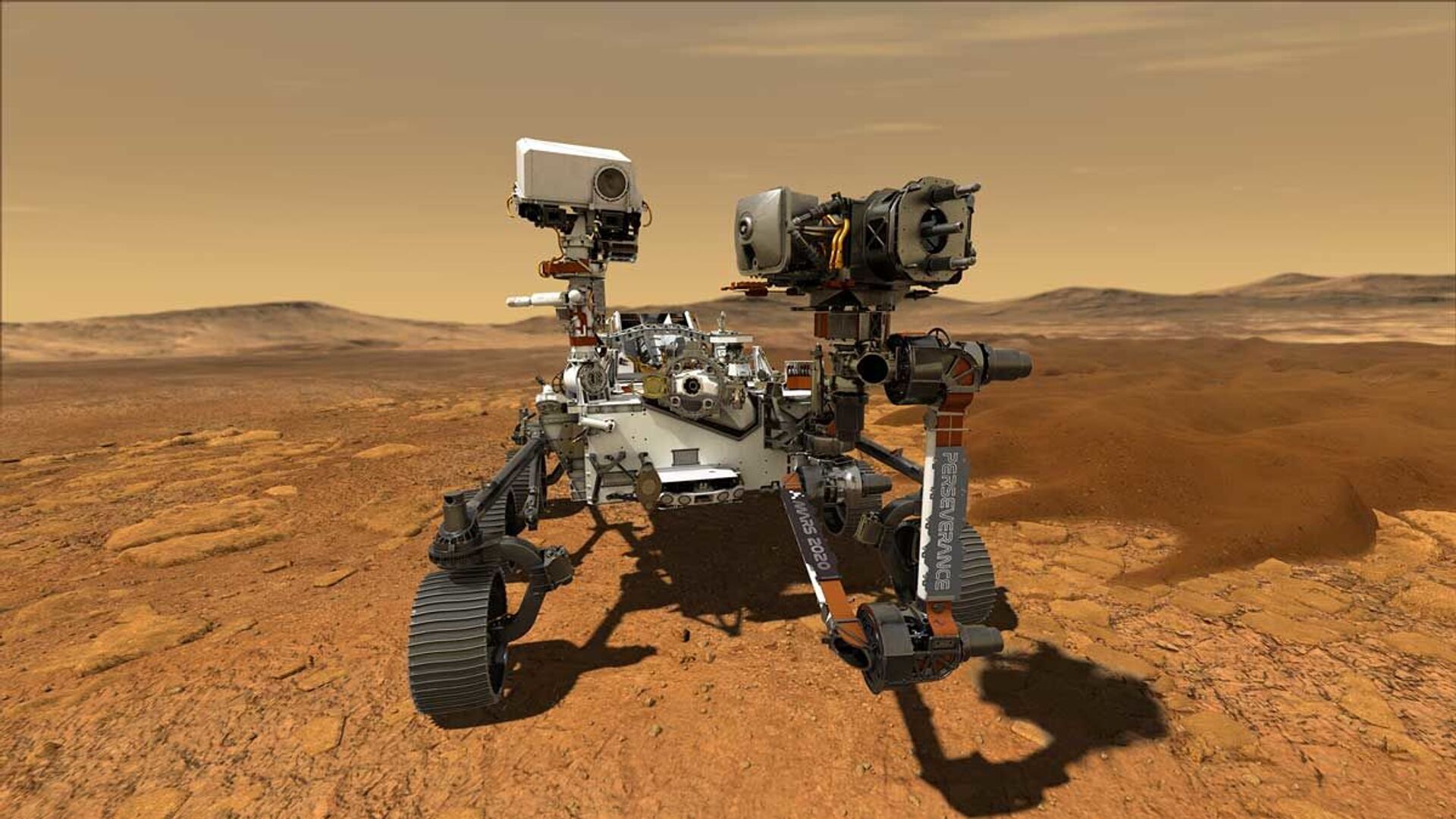https://sputnikglobe.com/20220528/researchers-reveal-soundscape-on-mars-changes-with-seasons-1095849999.html
Researchers Reveal Soundscape on Mars Changes With Seasons
Researchers Reveal Soundscape on Mars Changes With Seasons
Sputnik International
After the Perseverance rover landed on Mars in February 2021, scientists received a unique opportunity to study various aspects of the red planet, including... 28.05.2022, Sputnik International
2022-05-28T18:37+0000
2022-05-28T18:37+0000
2022-11-30T10:10+0000
rover
perseverance
mars
https://cdn1.img.sputnikglobe.com/img/07e5/02/11/1082105264_0:0:1200:675_1920x0_80_0_0_f3cace140d62d1ad8edadbbc16f8b981.jpg
Researchers at the Los Alamos National Lab in New Mexico, US have published findings following their work with sound recordings made by NASA's Perseverance rover on Mars. The rover has been recording ambient sounds on the red planet for over a year, and what scientists know for sure now is that it is very quiet there. The team determined that there are many types of winds on Mars, varying from a light breeze to strong gusts. Also, the researchers studied sound fluctuations on Mars and confirmed an earlier outlined hypothesis that high-pitched sounds travel faster than low-pitched ones. "Mars is the only place in the solar system where that happens in the audible bandwidth because of the unique properties of the carbon dioxide molecule that composes the atmosphere", Baptiste Chide said.It was also suggested that the volume of sound on Mars changes with seasons: during the winter, carbon dioxide freezes at the Martian poles and the atmosphere becomes less dense; as a result of this, the volume of sound varies about 20% between the seasons.NASA launched Perseverance in July 2020, and the rover landed in Mars' Jezero Crater on 18 February 2021. Its mission - which is about searching for signs of past and present life on the red planet - is expected to last at least one Mars year, which is about 687 Earth days.
mars
Sputnik International
feedback@sputniknews.com
+74956456601
MIA „Rosiya Segodnya“
2022
News
en_EN
Sputnik International
feedback@sputniknews.com
+74956456601
MIA „Rosiya Segodnya“
Sputnik International
feedback@sputniknews.com
+74956456601
MIA „Rosiya Segodnya“
rover, perseverance , mars
rover, perseverance , mars
Researchers Reveal Soundscape on Mars Changes With Seasons
18:37 GMT 28.05.2022 (Updated: 10:10 GMT 30.11.2022) After the Perseverance rover landed on Mars in February 2021, scientists received a unique opportunity to study various aspects of the red planet, including its acoustic domain.
Researchers at the Los Alamos National Lab in New Mexico, US have
published findings following their work with sound recordings made by NASA's Perseverance rover on Mars.
The rover has been recording ambient sounds on the red planet for over a year, and what scientists know for sure now is that it is very quiet there.
"It is so quiet that, at some point, we thought the microphone was broken!" Baptiste Chide, a postdoctoral fellow at the Los Alamos National Lab, said during the meeting of the Acoustical Society of America in Denver on 25 May.
The team determined that there are
many types of winds on Mars, varying from a light breeze to strong gusts. Also, the researchers studied sound fluctuations on Mars and confirmed an earlier outlined
hypothesis that high-pitched sounds travel faster than low-pitched ones.
"Mars is the only place in the solar system where that happens in the audible bandwidth because of the unique properties of the carbon dioxide molecule that composes the atmosphere", Baptiste Chide
said.
It was also suggested that the volume of sound on Mars changes with seasons: during the winter, carbon dioxide freezes at the Martian poles and the atmosphere becomes less dense; as a result of this, the volume of sound varies about 20% between the seasons.
NASA launched Perseverance in July 2020, and the rover landed in Mars' Jezero Crater on 18 February 2021. Its mission - which is about searching for signs of past and present life on the red planet - is expected to last at least one Mars year, which is about 687 Earth days.



